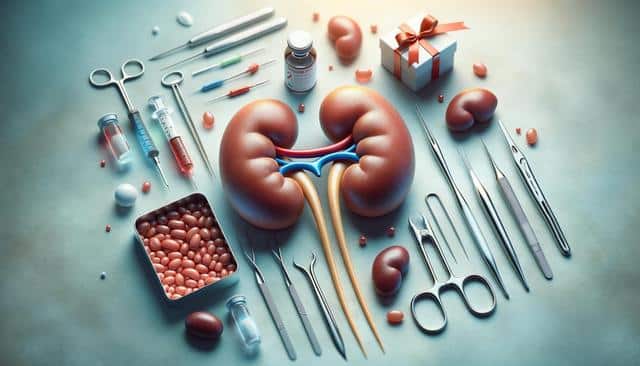
A Complete Guide to the Kidney Donation Process and Eligibility Criteria
Understanding the Importance of Kidney Donation
Kidney donation is a significant medical process that has the potential to save lives and improve the quality of life for recipients. Many individuals with kidney failure rely on dialysis to survive, but a kidney transplant offers a better long-term solution and can extend life expectancy. Living kidney donation not only helps shorten the waitlist for organs but also provides a healthier and quicker recovery for recipients compared to deceased donor transplants. Understanding the importance of kidney donation helps potential donors comprehend the profound impact their gift can have.
Eligibility Criteria for Donors
Before deciding to become a kidney donor, it is crucial to understand the eligibility criteria. To qualify, donors typically need to be in excellent health and free from medical conditions such as uncontrolled hypertension or diabetes. A series of tests and screenings are conducted to ensure the donor’s safety and compatibility with the recipient. Key eligibility factors include:
- Age range, usually between 18 and 60 years old
- Stable mental and physical health
- No history of kidney-related diseases
These criteria ensure that the donation process is safe for both the donor and the recipient.
The Donation Process: Step-by-Step
The kidney donation process involves several steps, each designed to ensure the well-being of the donor and the success of the transplant. Initially, potential donors undergo a thorough evaluation, including blood tests, imaging studies, and psychological assessments. Once cleared, the matching process begins to find a suitable recipient. The surgical procedure itself is performed laparoscopically, minimizing recovery time and post-surgery discomfort. After the operation, donors are closely monitored to ensure their recovery is smooth and uneventful. It’s essential for potential donors to understand each step to prepare adequately for the journey ahead.
Considerations and Implications of Donation
Donating a kidney is a personal decision that carries significant considerations. It’s important for donors to reflect on the emotional and physical implications. Though the risk of serious complications is low, understanding potential risks, such as infection or bleeding, is vital. Moreover, donors may experience emotional highs and lows throughout the process. Talking with healthcare professionals, counselors, and family members can provide the necessary support and guidance. Additionally, understanding the legal and ethical aspects of donation is crucial to make an informed decision.
Life After Donation
Life after kidney donation can be fulfilling and rewarding, but it also requires adjustments. Donors usually recover fully within a few weeks, but they must maintain regular medical check-ups to ensure ongoing health. Lifestyle changes, such as adopting a balanced diet and engaging in regular physical activity, are encouraged to support overall well-being. Many donors report a sense of satisfaction and purpose, knowing that their contribution has made a significant difference in another person’s life. Understanding these aspects helps potential donors prepare for life after surgery.
Conclusion
Becoming a kidney donor is a life-changing decision that requires thoughtful consideration and preparation. By understanding the process, eligibility criteria, and implications, potential donors can make informed choices. The journey of kidney donation not only transforms the lives of recipients but also offers donors a unique opportunity to make a lasting impact. For anyone considering this noble act, thorough research and consultation with healthcare professionals are essential steps towards making a well-informed decision.